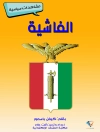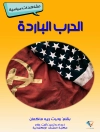Europe's cultural heritage is a vast, multifaceted mosaic showing who we were, who we are and who we aspire to be. We are all responsible for this huge, precious and fragile legacy.
The coronavirus pandemic revealed that unexpected events can suddenly change our way of life. In the future, other threats could well pose further challenges to our safety, health and environment as well as our social structures, values and ability to compete on the global markets.
How can Europe fulfil its promise if we do not reinvent and redesign the very basis of the European project and come up with innovative and bold solutions for a better and more sustainable future together?
We need a ‘New Heritage Deal for Europe’, a heritage-led transformation of Europe's society, economy and environment.
Prof. Dr Hermann Parzinger is an archaeologist, historian and cultural heritage expert. In 2018, he was appointed Executive President of Europa Nostra, a pan-European federation for cultural heritage that represents civil society organisations seeking to safeguard Europe's cultural and natural heritage. Since 2013, Europa Nostra has been running among its key activities the 7 Most Endangered Programme in partnership with the European Investment Bank Institute.
This is the fifteenth essay in the Big Ideas series created by the European Investment Bank.
Despre autor
Prof. Dr Hermann Parzinger (born 1959 in Munich, Germany) is an archaeologist, historian and cultural heritage expert who, since 2008, has been the President of the Stiftung Preussischer Kulturbesitz (Prussian Cultural Heritage Foundation), one of the world's largest cultural institutions including museums, libraries, archives and research institutes. He studied Prehistoric Archaeology and History and holds a Ph D from the Ludwig-Maximilians-Universität in Munich. From 2008 to 2012, he was President of the Deutsches Archäologisches Institut (German Archaeological Institute), and from 2015 to 2018, the Founding Director of the Humboldt Forum, Berlin. Since 1996, he has been teaching at the Freie Universität Berlin.
In 2018, he was appointed, in a voluntary capacity, Executive President of Europa Nostra, a pan-European federation for cultural heritage that represents civil society organisations seeking to safeguard Europe's cultural and natural heritage.
He is also active on the Board of the Stiftung Berliner Philharmoniker; the Convention of Baukultur of the Federal Foundation of Baukultur; the Founding Directorate of the Humboldt Forum, Berlin; the Research Board of the Austrian Academy of Sciences; the Conseil International du Musée des Civilisations de l'Europe et de la Méditerranée (Mu CEM), Marseille; the Senate of the Deutsche Nationalstiftung; and the International Advisory Board of the State Hermitage Museum, St. Petersburg.
He has led archaeological field projects in Spain, Turkey, Siberia, Mongolia, Kazakhstan, Uzbekistan, Tajikistan and Iran and is still actively pursuing research activities. He is a member of Academies of Sciences in Germany, Great Britain, Spain, Russia, Romania, China and the United States, and has received multiple awards, medals and other academic honours in Germany, Italy, Russia and Spain. He regularly publishes on a wide variety of subject areas, including archaeology, history, cultural heritage and cultural and academic policy issues.












